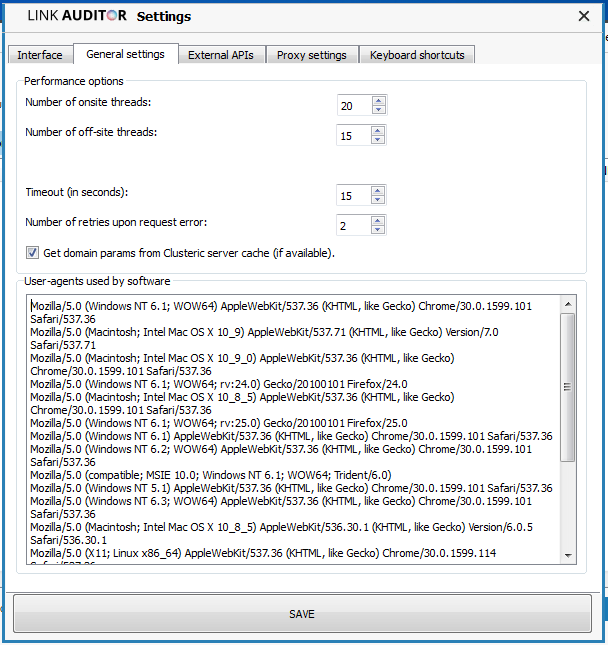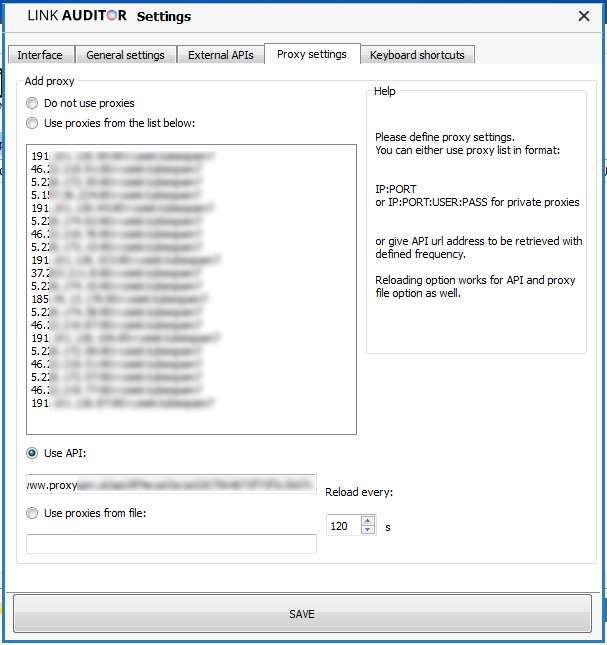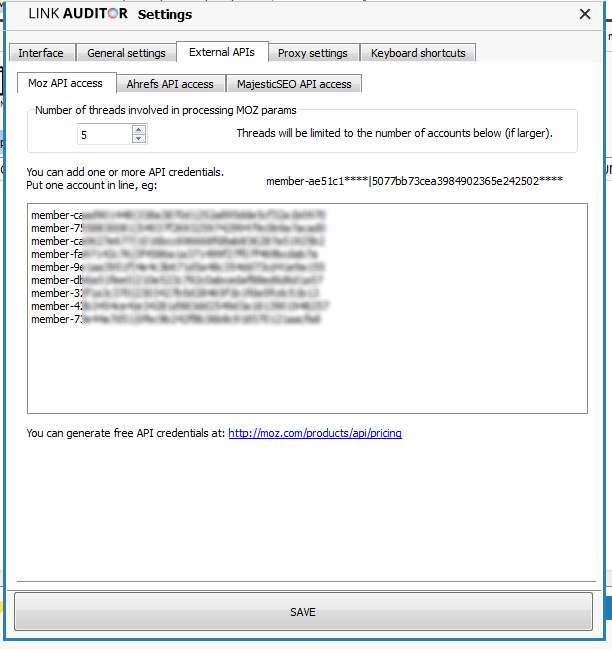OPTIONS

The user can specify “technical” parameters of analysis:
– Number of on-site threads – the faster the internet connection, the most threads can be set. Higher number of threads can also cause a greater load on the CPU caused by the complexity of on-site factor analysis.
– Number of off-site threads – the more proxy resources the user has, the bigger it can be. Downloading data off-site does not put as much strain on the connection as doing it on-site.
– Timeout (in seconds) – determines how long the program waits an answer after issuing a site request/API. WARNING: a large number of timeouts during issuing site requests might mean that the number of on-site threads is inadequate to the internet connection capacity or that the timeout is too low (which makes the slower-responding systems timeout, but that does not mean they are inactive).
– Number of retries upon request error – The number of re-requests in case of an error – determines how often the program will repeat requests that were not successful.
– Get domain params from Clusteric server cache (if available) – To speedup the analysis and save proxies (in majority of projects no proxies are needed at all!), most of the domain params can be downloaded from Clusteric cache.
– User-agents used by the software – List of User-agent headers used by the program when performing request.
PROXY SERVERS

In most cases, proxies are not neccessary to perform valuable analysis (as most of domain parameters can be obtained from Clusteric Server cache).
Proxies should be used to download subpage-level parameters, eg.: checking duplicate content (DUPLICATE_CONTENT), Google cache (Cache_date, Cache_title), PAGE_PR (for many links). You also should use proxies if you choose to disable Clusteric server cache in options.
It is possible to select one of the following options:
– Do not use proxies – it limits the capability of downloading certain parameters (in particular, ones related to Google search engine)
– Use proxies from the list below – A fixed proxy list – loaded once at the beginning of analysis
– Use API – Stating an API address that will be requested by the program in order to download new proxy addresses. It is possible to define the program’s API request frequency.
– Use proxies from file – Stating localization of a text file from which the program will load a proxy list at a certain time interval (as above). This file can be saved on a regular basis by a tool intended for proxy gathering/testing.
EXTERNAL APIs
Clusteric Link Auditor uses some external APIs such as:
FREE: Moz API
Free moz.com API (http://moz.com/products/pricing). The program can operate more than one free moz.com accounts at once, which accelerates data download and allows moz.com data download for a greater number of links.
You can also set the number of threads involved in processing moz data.

Ahrefs.com API
It is possible to download Ahrefs.com data through API. In order to do that, you should state an API Ahrefs.com token.
Majestic.com API
It is possible to download Majestic.com data through API. In order to do that, you should state an API Majestic.com API key.
LANGUAGE SETTINGS
Language settings can be changed in “Settings” window.
